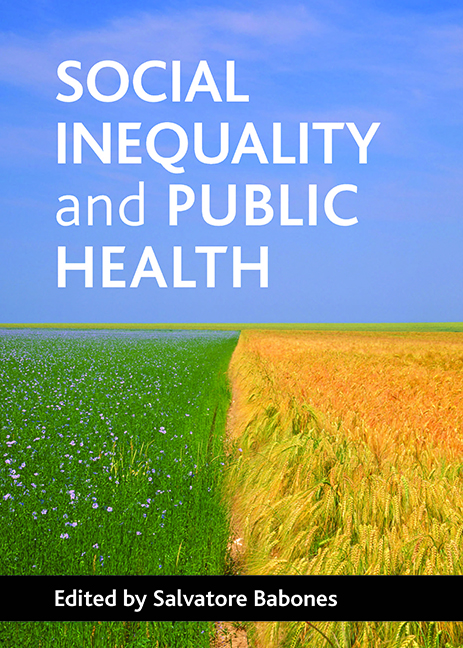Book contents
- Frontmatter
- Contents
- List of figures, tables, maps and boxes
- Preface
- Notes on contributors
- one Introduction
- Pathway 1 Differences in individual health behaviours
- Pathway 2 Group advantage and disadvantage
- Pathway 3 Psychosocial factors in individual health
- Pathway 4 Healthy and unhealthy societies
- Conclusions Public understanding of the new public health
- Index
two - The role of time preference and perspective in socioeconomic inequalities in health-related behaviours
Published online by Cambridge University Press: 22 January 2022
- Frontmatter
- Contents
- List of figures, tables, maps and boxes
- Preface
- Notes on contributors
- one Introduction
- Pathway 1 Differences in individual health behaviours
- Pathway 2 Group advantage and disadvantage
- Pathway 3 Psychosocial factors in individual health
- Pathway 4 Healthy and unhealthy societies
- Conclusions Public understanding of the new public health
- Index
Summary
Introduction
Pervasive socioeconomic inequalities in health and disease have been consistently reported within and between populations (Mackenbach et al, 1997; Acheson, 1998). While epidemiologists are adept at describing these relationships, evidence for interventions that can achieve whole-scale reduction of socioeconomic inequalities in health remains scarce (Arblaster et al, 1996; Gunning-Schepers and Gepkens, 1996; Alvarez-Dardet and Ashton, 2005). Socioeconomic differences in behaviours that influence health, such as smoking, diet and uptake of screening and vaccination programmes, play an important role in overall inequalities in health (Marmot et al, 1997), but there remains little understanding of why socioeconomic patterning of these behaviours persists and what can be done about it.
In 1995, Charlton and White proposed that the key links between socioeconomic position (SEP) and health-related behaviours are ‘choice, autonomy and long termism’ (Charlton and White, 1995, p 235). The concept they referred to as ‘long termism’ is more commonly termed ‘time preference’ or ‘time perspective’ and describes how individuals value and orientate themselves towards the future and how this influences their behaviour. The hypothesis that time preference and perspective may play a role in the link between socioeconomic factors and healthrelated behaviours is potentially important in terms of both understanding and developing interventions to reduce socioeconomic inequalities in health-related behaviours but remains under-researched.
Here I discuss how time preference and time perspective have been understood by both economists and psychologists, describe the theoretical reasons why time preference and perspective may be related to both SEP and health-related behaviours and briefly review the evidence relating to these relationships. I present a new conceptual model of the possible relationship between SEP, time preference and perspective, and health-related behaviours. I conclude that public health may have much to gain from integrating these economic and psychological concepts in its understanding of inequalities and that this is an area ripe for public health interventional development. Although previous reviews have collated evidence on the economic concept of time preference and health-related behaviours (Chapman, 2005), and the psychological concept of time perspective and alcoholism (Hulbert, 1988), no previous work has provided a comprehensive overview of both economic and psychological concepts and proposed that both may play a role in socioeconomic inequalities in health-related behaviours.
- Type
- Chapter
- Information
- Social Inequality and Public Health , pp. 9 - 24Publisher: Bristol University PressPrint publication year: 2009
- 1
- Cited by



